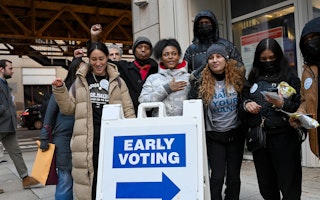The Moynihan Report Reveals a 50-Year-Old Story for Black Families
By Kenneth Braswell

One can’t dismiss the societal challenges for black families since the civil rights movement. To most, 1965 seems like 200 years ago. Many pioneers of that time would be challenged to say that they would live to see a black President. Fortunately for blacks in America, this has occurred with the election and re-election of Barack H. Obama; yet, unfortunately many of the challenges faced in 1965 for black families still exist today.
While many advances have been made for blacks in leadership, educational attainment, political influence and economic power; there is still much of the American Dream that eludes us. Today an unconscionable 73 percent of black babies are born into out-of-wedlock households, mostly to single women. While that is not an indication on a mother’s ability to raise her children alone it does raise another question; where is daddy?
Daniel P. Moynihan boldly spoke about the conditions in a report called The Negro Family: The Case for National Action. The 1965 report by then Secretary of the U.S. Department of Labor later became known as the Moynihan Report. In the report he described the startling statistics and forecast for Negro families in the areas of employment, family formation and poverty. He even ventured into unchartered territory by linking many of the problems to slavery experience; the report began with this ringing statement, “The United States is approaching a new crisis in race relations.” One might question what could have possibly been “new” in 1965 given all that was going on in American history; but over the years this revelation would continue to become painstakingly true.
“I think the Moynihan Report in a lot of ways is one of the most tragic intellectual documents in American History. In a sense that the facts to which it pointed in my view were accurate, the prognosis that it generated was in many ways accurate and our inability as a nation to read that information, interpret it and act upon it is the tragedy of the Moynihan Report,” says Dr. Ronald Mincy of Columbia University. By all accounts the country was in transition.
At home we were in the middle of the Civil Rights movement. Black Americans had lost two of its beloved leaders, Malcolm X and Dr. Martin Luther King, Jr., who were advancing the issues of the day. Simultaneously and abroad we were in the middle of the Vietnam War. No one wanted to address bad news about black families at a time of civil progress; not even black people.
Nonetheless as we examined it, the Moynihan Report highlighted the necessity of three core elements of the Open Society Foundation’s Campaign for Black Male Achievement to include; responsible fatherhood, mentoring, and the specific work with black men and boys.
These issues are at the center of many of the social ills exploding through black families and communities. It’s time to talk about it without the emotion that serves as barriers to address our concerns, guilt, and fears.
When I began thinking about proposing this work, I imagined being able to reveal the revelation of a deeper story. I envisioned the work setting the stage for serious conversation and action. I’m a black male, born in 1961, raised poor in a single mother household, and didn’t know my father. I understand that this work is the beginning of retracing the backdrop of my own life and many others who look just like me.
2015 marks the 50th anniversary of the controversial “Moynihan Report” of 1965. While social, academic and political critics of that time questioned the validity of the reports’ findings, few can argue that the current realities of black families in America closely mirror Moynihan’s assertion that “the structure of the Negro family is highly unstable and in many urban centers… approaching complete breakdown.” So, whether you agree or disagree, as Sen. Moynihan so directed stated, “It’s a new social circumstance. And we won’t understand it until we can get less emotional about it and more analytic.”
The Urban Institute and Fathers Incorporated have been funded by the Open Society Foundations Campaign for Black Male Achievement to reexamine, update and present a new research finding and social commentary of the 1965 and revised report. The research forum will take place on Feb 22 in Washington, D.C. Michelle Alexander, author of “The New Jim Crow,” will serve as the keynote speaker for the forum. Seating for the event is sold out; watch the live video webcast or a recording here.
Kenneth Braswell is executive director of Fathers Incorporated.


